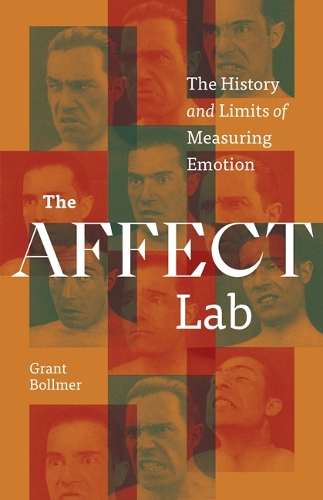
The Affect Lab: The History and Limits of Measuring Emotion
(Hardback)
Available Formats
Publishing Details
The Affect Lab: The History and Limits of Measuring Emotion
By (Author) Grant Bollmer
University of Minnesota Press
University of Minnesota Press
8th January 2024
United States
Classifications
Professional and Scholarly
Non Fiction
Psychology
Psychology: emotions
152.4
Physical Properties
Hardback
304
Width 140mm, Height 216mm, Spine 13mm
482g
Description
Examines how our understanding of emotion is shaped by the devices we use to measure it
Since the late nineteenth century, psychologists have used technological forms of media to measure and analyze emotion. In The Affect Lab, Grant Bollmer examines the use of measurement tools such as electrical shocks, photography, video, and the electroencephalograph to argue that research on emotions has confused the physiology of emotion with the tools that define its inscription.
Bollmer shows that the psychological definitions of emotion have long been directly shaped by the physical qualities of the devices used in laboratory research. To investigate these devices, The Affect Lab examines four technologies related to the history of psychology in North America: spiritualist toys at Harvard University, serial photography in early American psychological laboratories, experiments on psychopaths performed with an instrument called an Offner Dynograph, and the development of the electropsychometer, or E-Meter, by Volney Mathison and L. Ron Hubbard.
Challenging the large body of humanities research surrounding affect theory, The Affect Lab identifies an understudied problem in formulations of affect: how affect is a construction inseparable from the techniques and devices used to identify and measure it. Ultimately, Bollmer offers a new critique of affect and affect theory, demonstrating how deferrals to psychology and neuroscience in contemporary theory and philosophy neglect the material of experimental, scientific research.
Retail e-book files for this title are screen-reader friendly with images accompanied by short alt text and/or extended descriptions.
Reviews
"Moving compellingly through a series of instruments drawn from the histories of experimental psychology, psychiatric photography, and spiritualism, Grant Bollmer provides an important materialist rebuke to the liberatory strain in affect theory, which frequently treats affect as an eternal truth of the body rather than a momentary fragment."David Parisi, author of Archaeologies of Touch: Interfacing with Haptics from Electricity to Computing
"The Affect Lab argues that beneath affect theory lies media. Far from being natural or biologicaland, most fundamentally, far from being universalaffect is the product of the concrete technical operations that are necessary to access it in the first place. By challenging affect theory to examine its own technical basis, The Affect Lab will reboot the field for our times and, in the process, fundamentally change our views of how affect operates and the roles it plays in lived experience."Mark B. N. Hansen, author of Feed-Forward: On the Future of Twenty-First-Century Media
Author Bio
Grant Bollmer is senior lecturer of digital media at the University of Queensland. He is author of Inhuman Networks: Social Media and the Archaeology of Connection;Theorizing Digital Cultures; and Materialist Media Theory.
